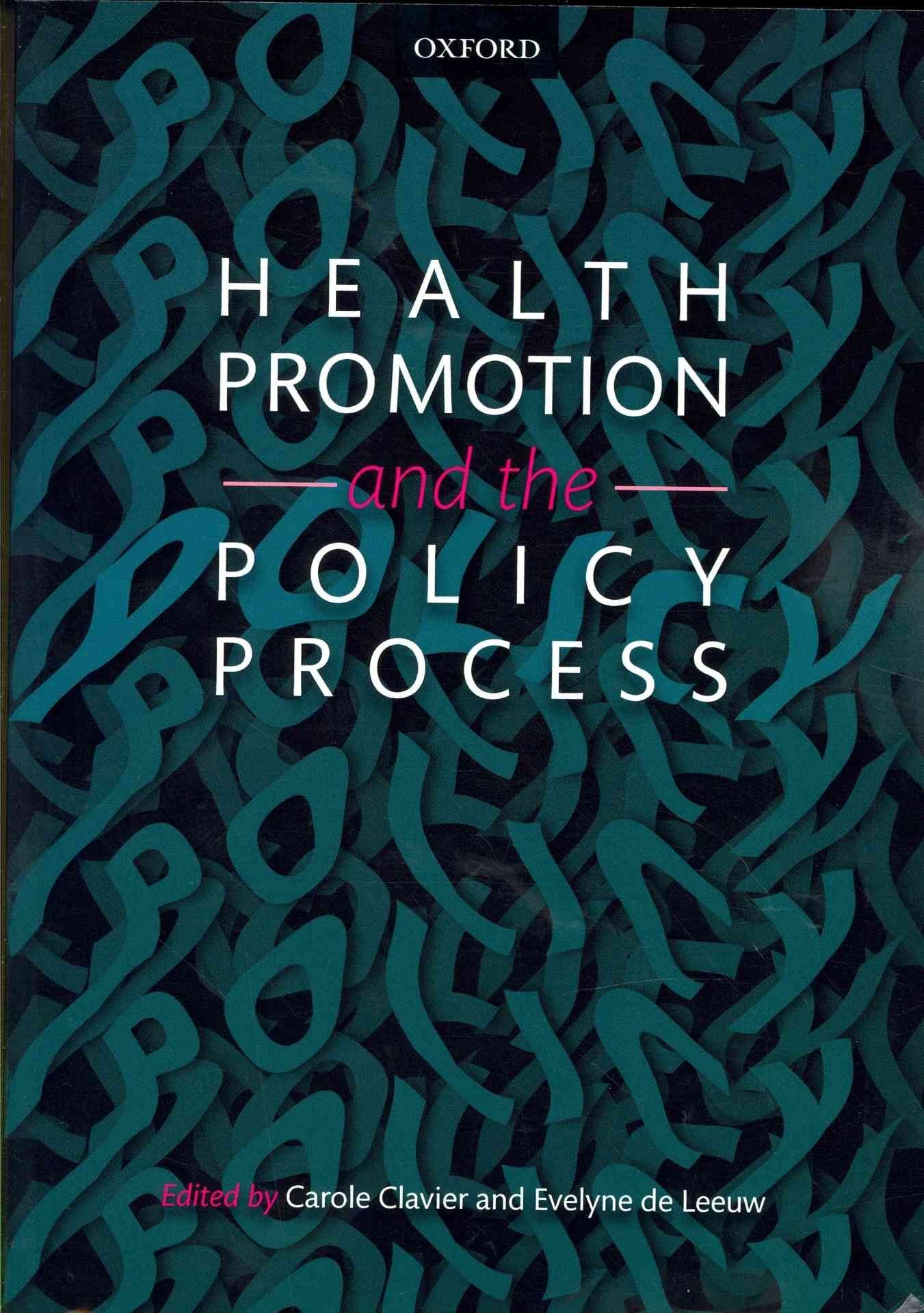Scholars and governments recognize the importance of policy development and implementation for population health, but there is a lack of systematic theoretical and conceptual development in the health field to address the issue. Health Promotion and the Policy Process is the first book to take an in-depth look at the theoretical advances in the political sciences, including discussing the significance of political economy and sociology, which so far have made little progress in health promotion development. The book argues that focusing on how public policies work makes it possible to move beyond the more behavioural ‘health education’ approach, and make the transition from political statements to political strategies. The authors draw from a wide array of theories on the policy process in the fields of political science and political sociology to illuminate health promotion strategies and objectives. For example they discuss how Kingdon’s Multiple Streams Model, Sabatier’s Advocacy-Coalition Framework and policy network theories can contribute to greater health equity, healthy public policies and community development. Through practical and critical tools, research, and experience-based discussion, Health Promotion and the Policy Process discusses how theories can be used to influence, evaluate, orient or implement health promotion interventions and policies. This book will be essential reading for health promoters who want to make a difference by influencing social determinants of health at the policy level including students, public health professionals, researchers, practitioners, decision makers and those concerned with applied policy research.












